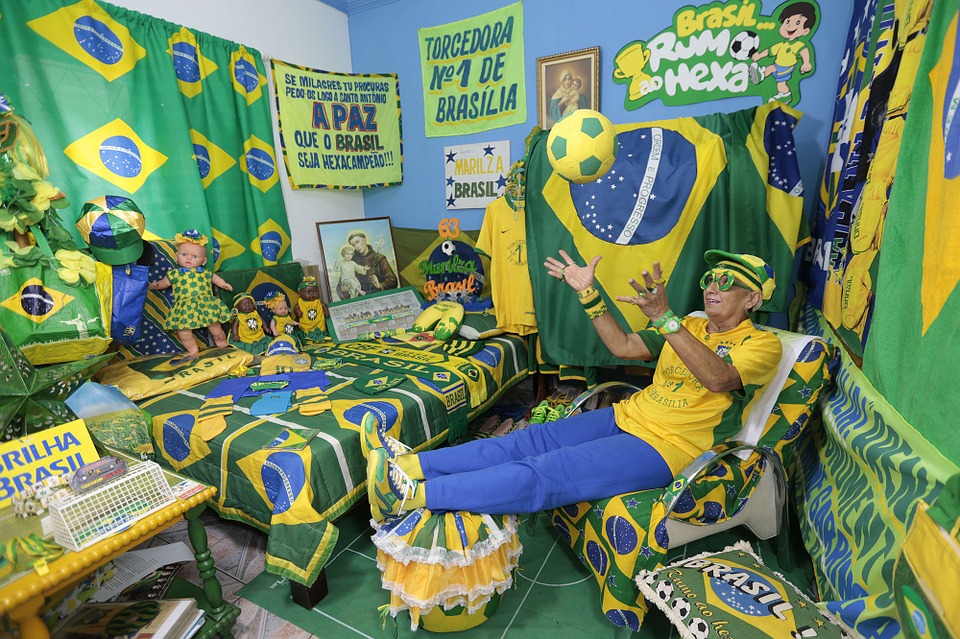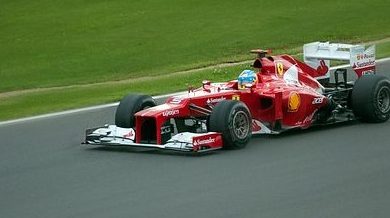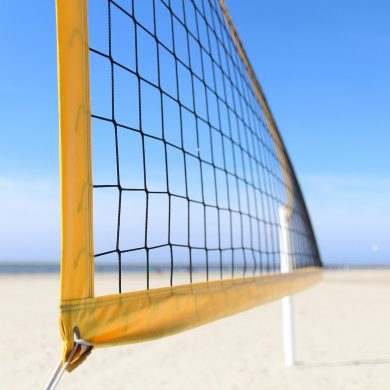More than anywhere else in the world, football is the number 1 sport in Brazil!
It is ever-present in the life of the inhabitants, whether they come from poor neighborhoods or upper classes, it governs their way of life, it maintains their pride on both sides of the planet, it represents the deification of sportspeople, who thanks to their exceptional talent, bring an indescribable joy to supporters, or an unfathomable silence. Without risking caricature, we can say that Brazil IS football.

Football in Brazil: an extraordinary and eventful story
The youngest, or the least addicted to the world of football, have a sad image of Brazilian football in mind: that of an incredulous nation crushed by the pain of unimaginable defeat in the semifinals of the last Football World Cup organized … (ouch!) in Brazil in 2014.
This defeat of exceptional magnitude (7-1 against Germany) conceded by one of the seemingly least talented “Seleçãos” in the history of Brazilian “Futebol” demonstrates at least two things: even the largest team in the world is not safe from a stinging loss, and no can erase the countless successes this team has gleaned over the decades.
Since its importation from the distant British Empire in the late nineteenth century by Charles W. Miller, an Anglo-Brazilian born in São Paulo, to todays exploits in the World Cup, football has emerged in Brazil as the sport. Thanks to her everything becomes possible, for the most fortunate as for the most deprived. And her story shows this well with no less than 5 World Cup wins, a record simply unmatched until today!
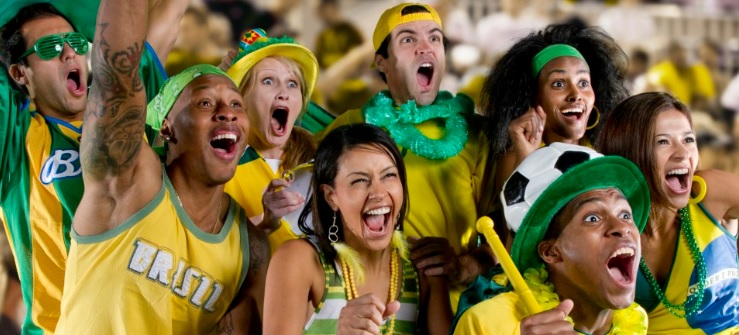
Football, the glue that holds the Brazilian nation
The indisputable advantage of football over all other sports is the simplicity of its basic rules that allow everyone to have access to the understanding of the sport. As in all countries of the world, football in Brazil is fast becoming an institution. But more than elsewhere, it has turned into a second religion, after the very official Catholicism.
From the beginning of the twentieth century, clubs were created, mainly in big cities like Rio or São Paulo, giving rise to clashes becoming more and more passionate. In the highly compartmentalised Brazilian society, these jousts have an eminently symbolic value: Today clubs like Flamengo from Rio become the banners of the poor and working class, while the wealthy classes are represented by Fluminense … which has no black player in its ranks. This will take on a very particular character in this country with vast inequality trends. And clashes on the grass will be all the more symbolic!
Any kid who kicks a ball, or even a tin can, in the streets of the favelas of the big Brazilian cities caresses the secret hope of one day becoming one the worshipped stars that we will go to applaud in the mythical stadiums like the Maracanã of Rio de Janeiro. Maracanã, had 200,000 seats at its construction, a world record at the time, built for the first World Cup organized by Brazil in 1950. More than a sport or game, football is a social lift through which all ethnic origins will soon be blended for the greatest happiness of an entire people.
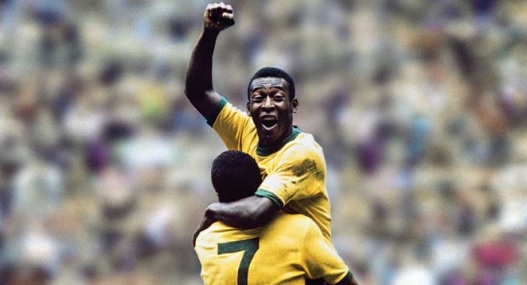
Pele, the king of Brazilian football
The World Cups would propel Brazil to the forefront of the international scene after the Second World War. That of 1950 of course, even if the defeat in the final “at home” against the sworn enemy Uruguay is hard felt by the fans, but especially that of 1958 in Sweden with the brilliant victory of the Seleção in the final. And above all, the global revelation of the very young (17 year old) striker Edson Arantes do Nascimento, Pelé.
With three World Cups to his name and other prestigious titles, the “King” Pelé would embody for eternity the perfect image of the modern footballer. In Brazil, he would become the emblematic figure unanimously respected in and out of the country (he would also be appointed Minister of Sports of Brazil in the nineties, then ambassador of the UN and UNESCO to education and the environment). Pele represents not only the Brazilian ideal in sports, with his natural elegance and talent, but he will perfectly embody this brilliant, artistic and inspired game that will always be the hallmark of the Brazilian team, to the delight of all fans, not just Brazilians.
Like Pelé, all the great Brazilian players – and this is what makes them undeniable – apply this type of intuition and genius, which the world’s press has called ” samba-play ” as the party aspect is blatant in how the national team plays. Even if nowadays the game has become muscular and leaves less and less room for fantasy – similar, unfortunately to many sports – nevertheless to see Brazil play is a rare pleasure, even for the most reticent to the ball.
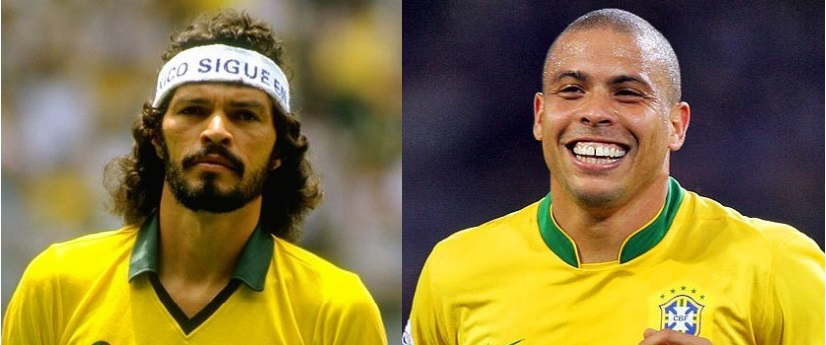
Socrates & Ronaldo, the two unforgettable greats
The successors of Pelé were numerous, and to name them all would be a very long process. There are two, however: Ronaldo Luis Nazario de Lima, or simply Ronaldo, is considered one of the best attackers of all time. “O Fenomeno” was a powerful player, at the peak of breathtaking speed and flawless technique. Winner of two Ballons d’Or (1997 and 2002) and two World Cups (1994 and 2002), he remains a legend amongst attackers around the world.
The other “phenomenon” was the iconic Sócrates Brasileiro Sampaio of Souza Vieira de Oliveira , better known as Sócrates . This elegant midfielder does not hold a top international ranking (he was unfortunately on the team of the eighties who failed to bring the World Cup back to the country) but his extraordinary track record makes him one of the most outstanding players: unlike the vast majority of his classmates, Sócrates was not only educated, but holds a medical degree, hence his nickname “Doctor”!
With this, he was a player-doctor and citizen committed to more freedom of expression in a country then living under the rule of the military junta. He introduced self-management to his Corinthians club with actions to make the Brazilian people aware of the need to manage their own destiny. Their motto was “Win or lose, but through democracy”.
This commitment never met the veto of the authorities (too fearful to touch a legend like Sócrates) but had a significant share in the country’s journey towards the path of democracy.
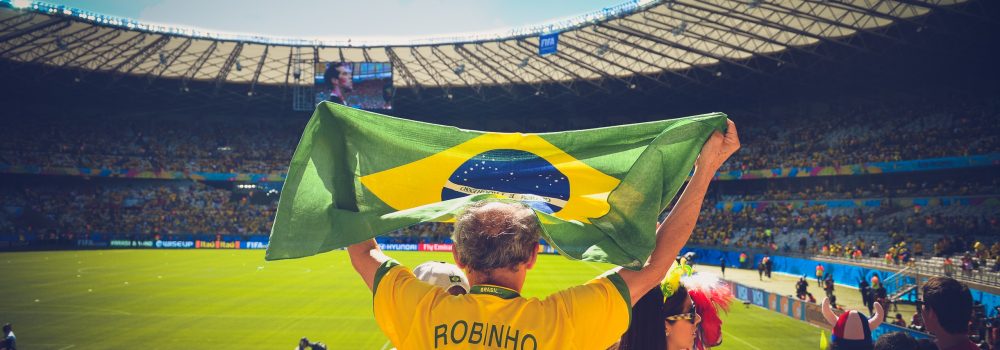
Football in Brazil, A great event not to be missed under any circumstances
Any fan of the round ball, but also the curious tourist, will not be able to refuse the possibility of going to go to see a great football match in a mythical place like the Morumbi of São Paulo or the Maracanã of Rio de Janeiro.
Even if the latter has seen its capacity reduced from 200,000 to 100,000, then to 80,000 spectators for the 2014 World Cup – to facilitate better conditions. To attend a match of the Brazilian championship, or South American cup in these football temples is a perfect opportunity to live an exceptional experience of fervor and passion as only the Brazilian people can produce.
In the same way as Carnival football remains the unmissable opportunity for Brazilians who are always ready to party and show their exuberance and unwavering faith in their team. The pre-match discussion amongst fans will not focus on winning or not winning, but on knowing what will be the best possible composition of the “Seleção” to bring back a title!
